7 Foods That Weaken Your Bones
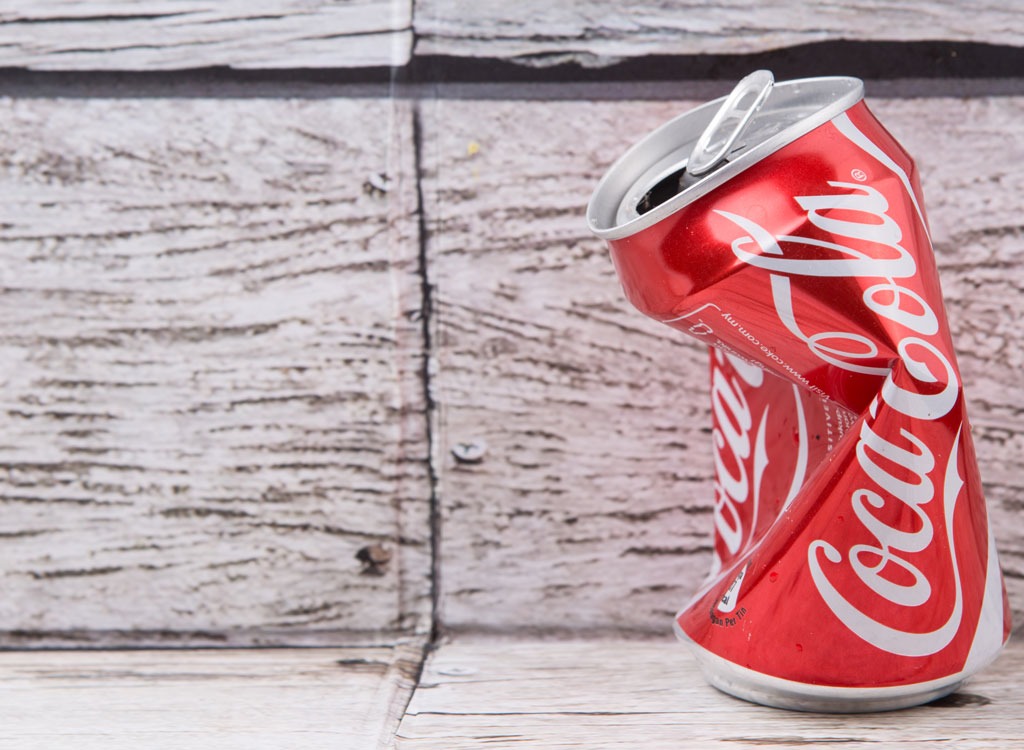
As kids, our parents often stressed the importance of building healthy bones by pouring us a glass of milk at breakfast or sneaking some leafy greens into our lunchboxes. And as we grew up, many of us learned to adopt those habits to maintain a strong skeleton. But even though it’s easy to load up on bone-friendly foods, it’s just as easy to consume foods that, well, eats away at your bones. That’s why we’ve consulted some of the leading nutritionists and diet experts in hopes of understanding which foods are bad news for our bones. (Spoiler alert: There are a couple healthy ones that will shock you!) Take a look at our list below, and then check out these 20 Calcium-Rich Foods That Aren’t in the Dairy Aisle to help counteract some of those effects.
Soft Drinks

Reaching for a fizzy can of soda may be doing more damage to your bones than you think. Soft drinks are packed with phosphoric acid, which causes an increase in the blood’s acidity levels. As a result, the body pulls calcium out of our bones in order to bring the acidity levels back to normal. Yikes! As if that’s not bad enough, people who drink soda (including diet sodas!) are more likely to have a “soda belly,” which is similar to a beer belly. Don’t miss our exclusive list of 70 Popular Sodas Ranked By How Toxic They Are!
Coffee
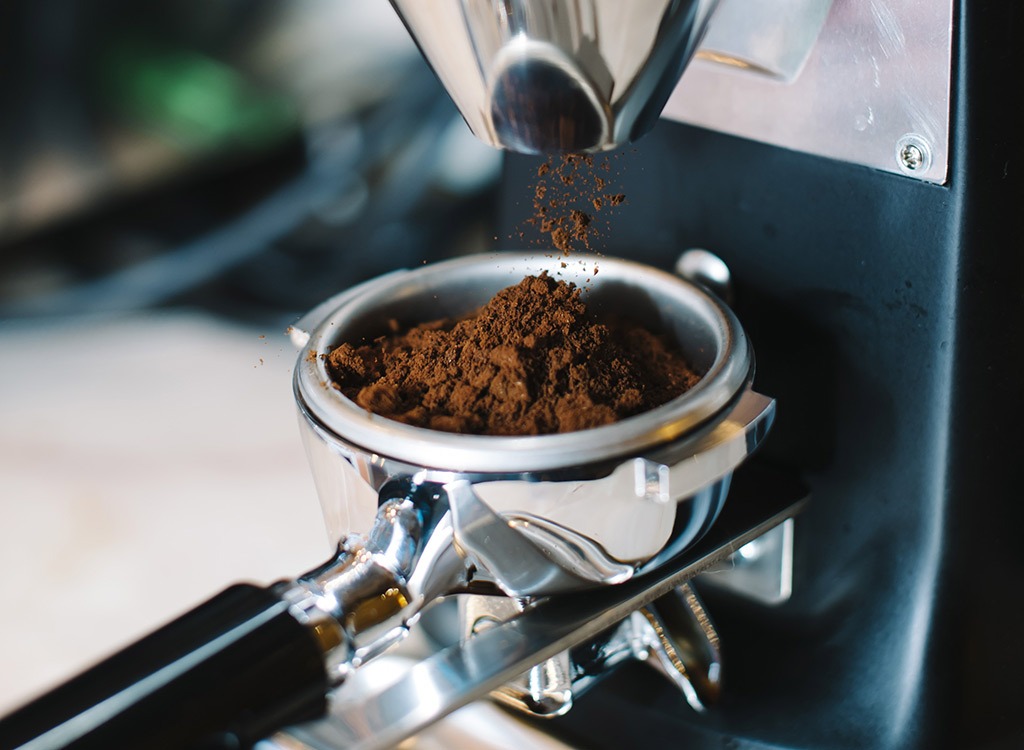
Just like soda, this caffeinated drink can also decrease your body’s ability to absorb calcium, resulting in a weaker you. Limit your intake to less than three cups of java a day, and you should be fine. But if your early mornings call for an extra few shots of espresso, try reaching for an apple instead. Some experts swear that apples provide more energy than a cup o’ Joe, due to their high abundance of simple carbs.
Beef Liver
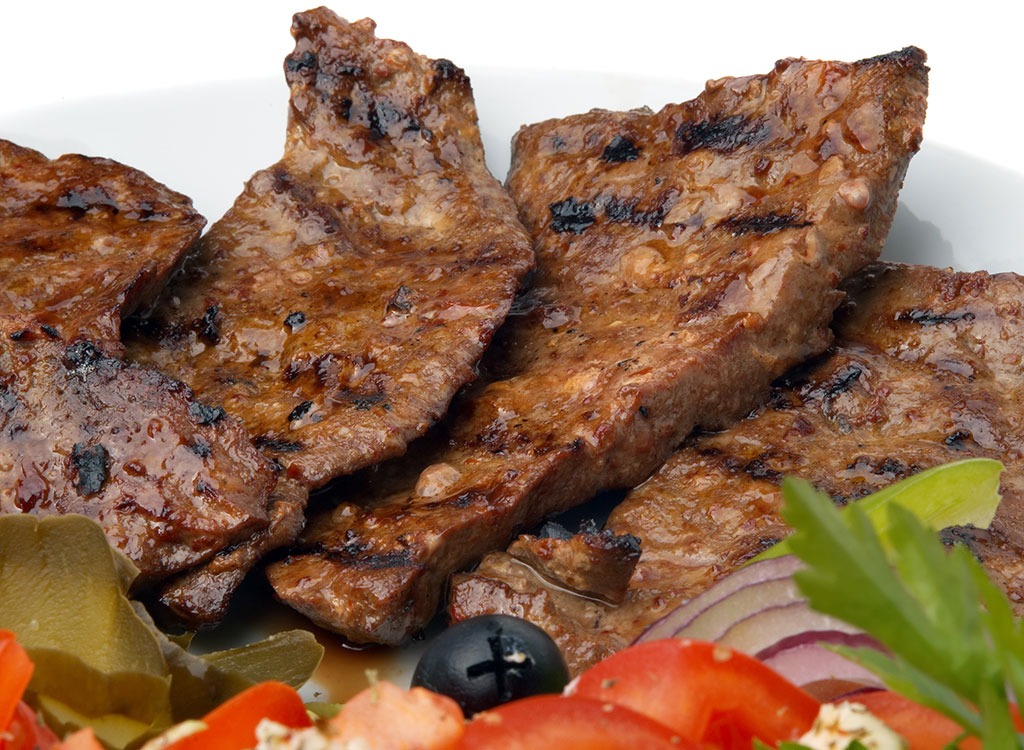
Beef liver happens to be the greatest source of animal-derived vitamin A, also known as retinol. And while vitamin A can clear up acne, boost eye health, and even amp up your immunity, too much of it can wreak havoc on your bones. “High intakes of beef liver—greater than three ounces—could stimulate osteoclast activity or bone breakdown,” explains Anita Mirchandani, MS, RD, CDN and spokesperson for the New York State Academy of Nutrition and Dietetics. So steer clear of the steer meat and whip up a healthy chicken recipe for tonight’s dinner instead.
Sodium-Rich Foods
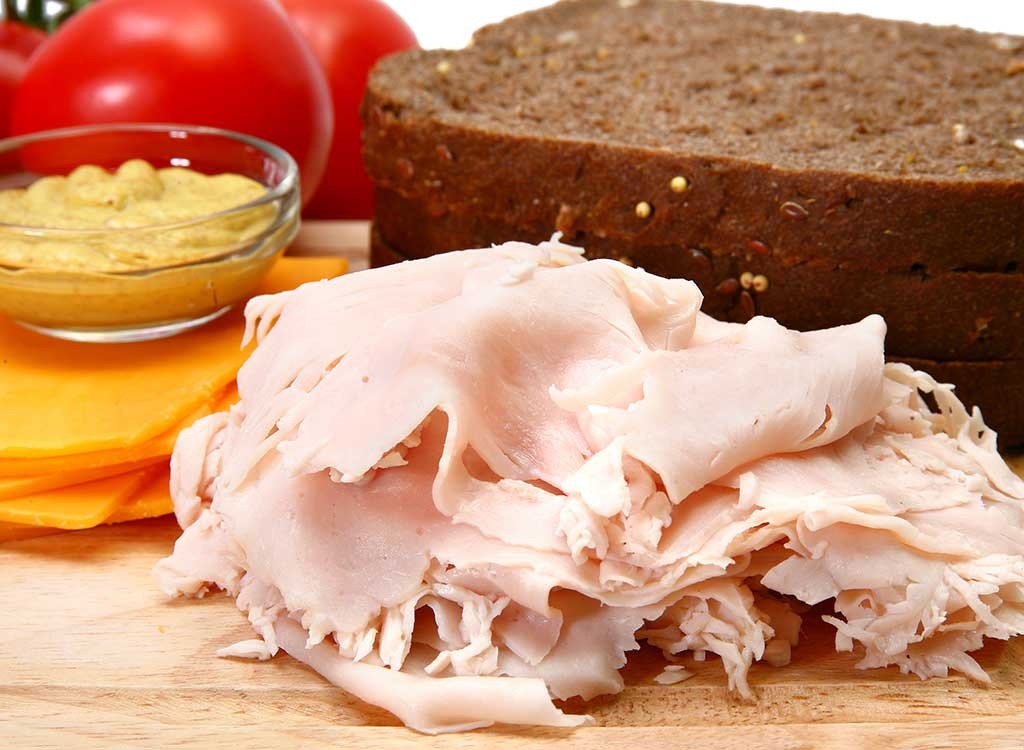
As you age, eating a high-sodium diet causes your bones to degenerate—even while you’re still a spring chicken! In fact, for every 2,300 milligrams of sodium you consume, you lose approximately 40 milligrams of calcium. The USDA currently recommends limiting your daily sodium intake to less than 2,300 mg, which is no easy feat considering salt hides in many American diet staples like bread, deli meats, canned soups, and fast food. The best way to avoid extra sodium from seeping into your bones is to skip processed foods as often as possible, keep the salt shaker away from the kitchen table, and turn a cold shoulder to both the usual suspects and the sneaky salt sources like these 20 Restaurant Desserts With More Salt Than A Bag of Pretzels.
Alcohol

Besides sending you into a frenzy of hungover regret, throwing back shots of alcohol can also weaken your bones in the long run. Alcohol prevents osteoblasts (bone-building cells) from absorbing any bone-friendly minerals, like calcium, which in turn slows down a broken bone’s healing process and weakens the bones overall. For more reasons to ditch the booze, consider these 7 Things That Happen To Your Body When You Give Up Alcohol.
Carrots and Sweet Potatoes
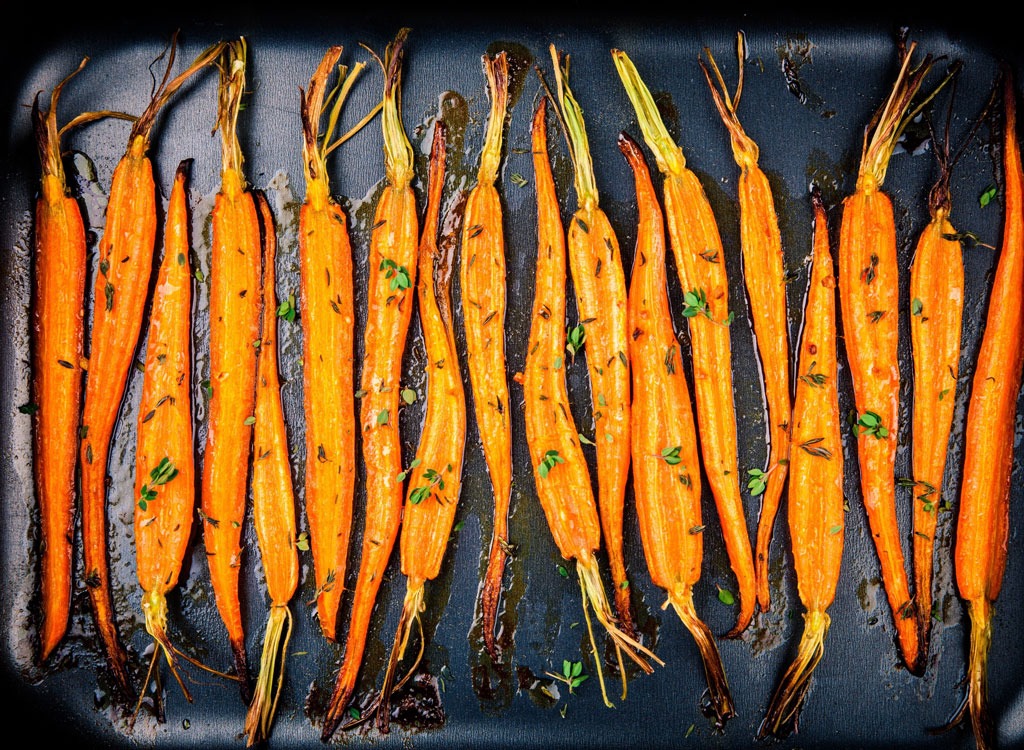
Since carrots and sweet potatoes are teeming with calcium-leaching vitamin A, these healthy veggies are hypothesized to weaken your bones if consumed in significant and consistent excess. And by large quantities, we mean way more carrots and orange spuds you’d ever want to eat in a day. “Based on my calculations, that’s about 4 sweet potatoes daily—and likely for a long period of time,” Mirchandani explains. “For carrots, it’s roughly about 10-11 cups of raw carrots daily—and also likely for a long period of time.” Seems like it’s safe to say the majority of us aren’t munching on the orange veggies that much. Whew.
Hydrogenated Oils
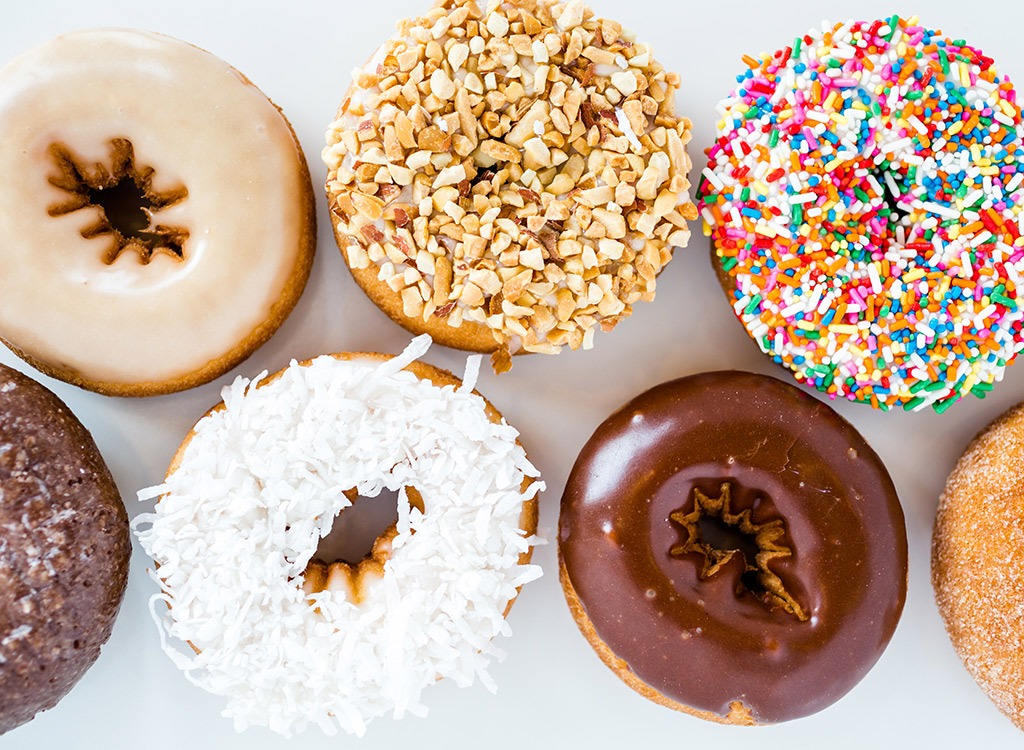
Hydrogenated oils are man-made fats produced by contaminating vegetable oils with hydrogen gas under super high pressure—which creates artery-blocking trans fats. This process destroys any naturally-occurring vitamin K in the veggie oils. And since vitamin K is essential for strong bones, we recommend forgoing any foods that contain trans fats completely (think fast food, frozen food, pastries, and some coffee creamers). To ensure your foods aren’t contaminated by these foul fats, check the ingredient list (even if the label reads trans fat free!) for any “hydrogenated oils” or “partially hydrogenated oils.” Those phrases are synonyms for trans fats and are likely to be snuck into your food. This merciless villain certainly fits the bill for being one of the 23 Worst Food Additives In America!